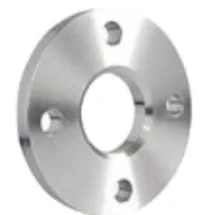-
Cangzhou Yulong Steel Co., Ltd.
-
Phone:
+86 13303177267 -
Email:
admin@ylsteelfittings.com
- English
- Arabic
- Italian
- Spanish
- Portuguese
- German
- kazakh
- Persian
- Greek
- French
- Russian
- Polish
- Thai
- Indonesian
- Vietnamese
- Zulu
- Korean
- Uzbek
- Hindi
- Serbian
- Malay
- Ukrainian
- Gujarati
- Haitian Creole
- hausa
- hawaiian
- Hebrew
- Miao
- Hungarian
- Icelandic
- igbo
- irish
- Japanese
- Javanese
- Kannada
- Khmer
- Rwandese
- Afrikaans
- Albanian
- Amharic
- Armenian
- Azerbaijani
- Basque
- Belarusian
- Bengali
- Bosnian
- Bulgarian
- Catalan
- Cebuano
- China
- China (Taiwan)
- Corsican
- Croatian
- Czech
- Danish
- Esperanto
- Estonian
- Finnish
- Frisian
- Galician
- Georgian
- Kurdish
- Kyrgyz
- Lao
- Latin
- Latvian
- Lithuanian
- Luxembourgish
- Macedonian
- Malgashi
- Malayalam
- Maltese
- Maori
- Marathi
- Mongolian
- Myanmar
- Nepali
- Norwegian
- Norwegian
- Occitan
- Pashto
- Dutch
- Punjabi
- Romanian
- Samoan
- Scottish Gaelic
- Sesotho
- Shona
- Sindhi
- Sinhala
- Slovak
- Slovenian
- Somali
- Sundanese
- Swahili
- Swedish
- Tagalog
- Tajik
- Tamil
- Tatar
- Telugu
- Turkish
- Turkmen
- Urdu
- Uighur
- Welsh
- Bantu
- Yiddish
- Yoruba

Nov . 06, 2024 10:20 Back to list
Understanding the Benefits and Challenges of Metal Sewer Pipe Installation
Understanding Metal Sewer Pipes A Comprehensive Overview
Sewer systems play a crucial role in maintaining public health and environmental safety. Among the various materials used for sewer pipes, metal pipes have been a common choice for many decades. This article will explore the characteristics, advantages, disadvantages, and applications of metal sewer pipes, particularly focusing on the commonly used types like cast iron and galvanized steel.
Characteristics of Metal Sewer Pipes
Metal sewer pipes are known for their robustness and durability. Typically constructed from materials such as cast iron and galvanized steel, these pipes can withstand high pressures and resist damage from physical impacts. Cast iron pipes, for instance, have a long lifespan and can last over a century when properly maintained. They possess excellent sound-dampening properties, making them ideal for urban areas where noise pollution is a concern.
Galvanized steel, which is coated with a layer of zinc, offers additional corrosion resistance. This feature is critical in plumbing applications where the pipes are exposed to moisture, as it prevents rust and degradation over time. The smooth interior surfaces of metal pipes also facilitate improved flow rates, reducing the chances of clogging.
Advantages of Metal Sewer Pipes
1. Longevity One of the primary advantages of metal sewer pipes is their longevity. With proper installation and maintenance, both cast iron and galvanized steel pipes can last several decades, minimizing the need for replacements.
2. Durability Metal pipes are exceptionally durable. They can withstand harsh environmental conditions, including temperature fluctuations and soil movement, making them suitable for various installation locations.
3. Resilience against Physical Damage Unlike PVC or other plastic pipes, metal sewer pipes are resistant to impact damage. This characteristic is particularly beneficial in areas where ground movement or construction activities may pose risks.
4. High Load-Bearing Capacity The ability of metal pipes to support heavy loads makes them ideal for urban drainage systems, where they may be buried beneath streets or heavy traffic areas.
Disadvantages of Metal Sewer Pipes
metal sewer pipe

Despite their considerable benefits, metal sewer pipes also have several disadvantages
1. Corrosion While galvanized steel provides some resistance to corrosion, it is not entirely immune. Over time, exposed metal can rust, particularly in areas with high moisture levels or aggressive soil conditions.
2. Weight Metal pipes tend to be heavier than their plastic counterparts, which can complicate installation and require more effort and machinery.
3. Cost The initial installation cost for metal pipes can be higher than for other materials like PVC or HDPE. This can be a significant consideration for budget-conscious projects.
4. Noise Although cast iron pipes help reduce noise, metal pipes in general can still transmit sound, leading to potential noise issues in residential areas.
Applications of Metal Sewer Pipes
Metal sewer pipes are commonly used in various applications, including
- Municipal Sewer Systems Many cities still employ cast iron and galvanized steel for their sewer systems due to their durability and longevity. - Industrial Applications In industrial settings, metal pipes are typically used for wastewater disposal where chemical exposure is a concern, and their strength is needed to handle waste materials. - Commercial Buildings Restaurants and commercial facilities favor metal sewer pipes for their reliable performance and ability to handle significant waste volumes.
Conclusion
In conclusion, metal sewer pipes, particularly cast iron and galvanized steel, offer various benefits and drawbacks that should be carefully considered. Their durability, strength, and longevity make them a suitable choice for many sewer applications; however, potential issues like corrosion and weight must also be taken into account. As cities continue to develop and evolve, the choice of materials for sewer systems will remain a critical aspect of urban planning, with metal pipes playing a significant role in ensuring safe and effective waste management. Understanding the properties and best applications of these materials will aid engineers and planners in making informed decisions that benefit both infrastructure and community health.
Latest news
-
ANSI 150P SS304 SO FLANGE
NewsFeb.14,2025
-
ASTM A333GR6 STEEL PIPE
NewsJan.20,2025
-
ANSI B16.5 WELDING NECK FLANGE
NewsJan.15,2026
-
ANSI B16.5 SLIP-ON FLANGE
NewsApr.19,2024
-
SABS 1123 FLANGE
NewsJan.15,2025
-
DIN86044 PLATE FLANGE
NewsApr.19,2024
-
DIN2527 BLIND FLANGE
NewsApr.12,2024
-
JIS B2311 Butt-Welding Fittings LR/SR 45°/90° /180°Seamless/Weld
NewsApr.23,2024











